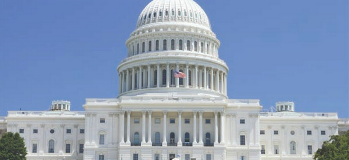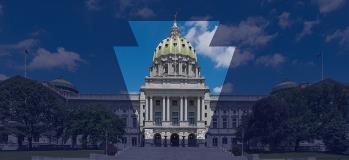Winter 2021
Features
Growing Debts and Deficits Pulling Down Our Future
By Edward R. Jenkins Jr., CPA, CGMA
What’s the difference between “equity” and “resilience?” In real terms, essentially nothing: equity is resilience. Equity gives you, a company, or a government the ability to take a hit – a hit like a recession or a pandemic. The big question now is whether or not the United States has the equity to return to normal after a crisis. To consider this issue, I explore the growing U.S. debt, the concomitant reduction in equity, and the implications of debt growth on government and the economy as a whole.
Columns

Accounting & Assurance
Audit Opinions: Changes from Numerous ASB Statements
By Nancy J. Stempin, CPA, CGMA, CIDA
Discusses the significance of multiple ASB standards, including SAS 137’s impact on opinion and actions auditors should be taking right now to be prepared.

Employee Benefit Plans
Get Ready for Changes to Employee Benefit Plan Audit Opinions
By Nancy J. Stempin, CPA, CGMA, CIDA
Pinpoints SAS No. 136, Forming an Opinion and Reporting on Financial Statements of Employee Benefit Plans, focusing on key areas of change from previous guidance and auditor next steps.

Government & Not-for-Profit
A Closer Look at GASB’s Proposed Financial Reporting Model
By Khaled Abdel Ghany, CPA, PhD
Walks through the Government Accounting Standards Board’s Financial Reporting Model Improvements exposure draft, providing an assessment of the validity of expected changes.

Complexities Abound for Pass-Through Entities and SALT Deduction Work-Arounds
By Gregory M. Rineberg, CPA, and James J. Newhard, CPA
The Tax Cuts and Jobs Act of 2017 (TCJA) reformed many aspects of the Internal Revenue Code of 1986, but the $10,000 state and local tax deduction limitation (SALT cap) has remained one of its more controversial aspects. The SALT cap prevents many individuals from being able to fully deduct their state and local income and property taxes on their federal individual income tax returns. This is further exacerbated for individuals filing in multiple states through their ownership interests in partnerships, S corporations, and certain limited liability companies.

Emerging CPAs
CPA Exam Changes on the Way
By Marie Solange Lopes, CPA, and Daniel J. Gaydon, DBA
Provides a roadmap for upcoming changes to the CPA Exam, discussing changes that are happening in 2021 and those that are likely for 2024.

Education
Who Is Sitting for the CPA Exam and Why?
By Brian Trout, CPA, DBA, CMA, and Eric Blazer, PhD
Seeks to decipher the demographic makeup of who is taking the CPA Exam, and how the numbers can be bolstered in a time where stocking the CPA pipeline has never been more important.

COVID-19 Underscores Soft-Skills Education and Upends Internships
By Heather M. Demshock, CPA, CMA, and Ashley Stampone, CPA
The onset and spread of COVID-19 taught us that the ability to adapt and adjust has never been more critical. For college educators, the virus created what at times seemed like insurmountable obstacles and uncertainties. Would courses resume in person, move to virtual, or be a combination of both? If virtual or hybrid, how would faculty ensure that students are learning? What modalities could be implemented to help the transition process? How did COVID-19 impact how students would complete requirements such as internships or externships?

Level Up Your Skills for CPA Survival
By Cory Ng, CPA, DBA, CGMA, and Brian Trout, CPA, DBA, CMA
To meet the rapidly changing demands of the accounting profession, the next generation of CPAs must have a digitally focused skill set and a strong portfolio of soft skills in communication, critical thinking, and collaboration, among others. It is critical for organizations of all sizes to engage in upskilling initiatives to ensure CPAs continue to thrive in the future. Accounting programs at colleges and universities can also play an important role by integrating essential digital competencies and soft skills into the curriculum.

Business & Industry
Five Ways to Enhance Your Banking Relationships
By Barry M. Pelagatti, CPA
Explores a series of techniques to ensure that your organization’s rapport with its lenders is a beneficial one.

Federal Tax
IRC Section 1031 and Real Estate Like-Kind Exchanges
By Edward A. Kollar, CPA, EA, CSEP, and Tim Cotter, CPA, JD
Explores the impact the Tax Cuts and Jobs Act has had on Internal Revenue Code Section 1031, as well as the further developments that could take place under the administration of Pres. Joe Biden.

Legislative News
Tax Proposals Could Dominate Legislative Session Early
By Peter N. Calcara, CAE
Previews the possible goings-on in Harrisburg as the 205th Pennsylvania General Assembly wades through tax proposals, handles budgetary concerns, and more.

International Tax
U.S. Businesses Must Be Aware of VATs and What the Responsibilities Are for These Taxes
By Andrew M. Bernard Jr., CPA, and Benno Tamminga
Takes a look inside the concept and execution of value-added taxes for U.S. businesses with financial concerns in countries around the world.

Personal Financial Planning
Thoughtful Professional Collaborations Can Bolster Your Common Client’s Success
By Elizabeth F. Hassler, CPA, and Angela M. Stephenson, CPA, PFS, CFP
Stresses the value of the CPA and personal financial planner segments of a financial team working together to ensure the best result for a client.

Liability Lessons
How to Respond to Comfort Letter Pressures
By Suzanne M. Holl, CPA
Provides tips on how CPAs can navigate the delicate balance of staying out of ethical trouble while managing client and third-party expectations.


